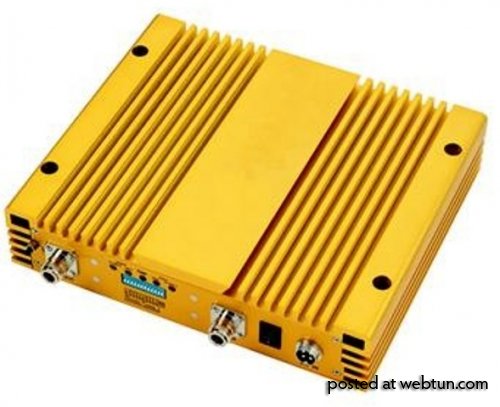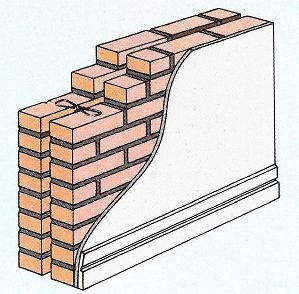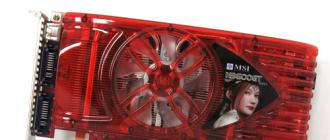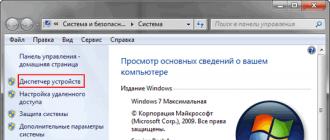Instructions
The quality of data transmission carried out on a particular channel can deteriorate either through the fault of the user or the operator, or for reasons beyond their control. A very common mistake of subscribers of operators cellular communication is the use of mobile phone in a basement, an underground passage, an elevator with metal walls. Also, we should not forget that many residential buildings are built of reinforced concrete. This material shields electromagnetic radiation to a lesser extent - in such a house it is sometimes enough to move with the apparatus only by half a meter, so that the reception is dramatically improved. In addition, in a reinforced concrete house, the reception of decimeter TV channels by the indoor antenna is difficult - in this case it must be brought to the window.
The passage of radio waves in different ranges is influenced by weather conditions and even by the time of day. In general, this influence is noticeable on the broadcasting bands - DV, SV, KV, to a much lesser extent - on VHF. Solar radiation affects the ionosphere, which under its influence begins to reflect the radio waves differently. Cellular communications It also works in a much higher frequency range - centimeter. Here, the effect of weather is not pronounced, however, in a number of cases in sunny weather, the quality of communication noticeably decreases. In this case, the ionosphere has nothing to do with: devices respond to interference created by the sun itself, because it emits not only visible light. It should also be remembered that radiation in these ranges propagates rectilinearly, similarly to light, and can be blocked, for example, by buildings.
Much depends on the quality of the equipment itself. Radio receivers and televisions have different sensitivity, so two units of different brands can, while nearby, receive the signal of the same transmitter with different quality. The parameters of radio modules of cellular phones and 3G-modems are also different, so does the built-in antennas.
Almost all consumer electronics are now equipped with impulse power supplies. The interference from them is mainly affected by low-frequency ranges. For this reason, reception on long, medium and short waves in the city is difficult, but, nevertheless, it is possible if you apply a good external antenna. To work the same VHF receivers, televisions and cellular communications impulse power supplies almost do not affect.
Wired and cellular telephone communications, as well as access to the Internet is carried out by the so-called switched channels. This means that every time you connect, the chain of nodes that are free at the moment is automatically built. Sometimes it is enough to forcefully break the connection and implement it again, so that communications has improved. In some smartphones, in particular, on the Symbian platform, there is a so-called "Connection Manager" for forced disconnection of the Internet connection (in older versions - "Connection Manager").
When accessing the Internet via a cellular channel, one more factor is added to the above factor - the change of base stations. Due to the continuous change in reception conditions, even a fixed phone can periodically switch from one station to another - the one whose signal is stronger at the moment. However, if the equipment that has been recently switched to equipment is malfunctioning or overloaded, it may take some time to restore the connection to the Internet. Especially often this situation occurs if switching is carried out from a station supporting 3G to a station incompatible with this standard, or vice versa. Sometimes there are also such malfunctions of base stations, which interfere with connection to the Internet in general, while voice communications works fine. Sometimes it's enough to call the operator's support service, say that your internet does not work, inform your location, and the malfunction will be fixed soon.
According to statistics over the past two decades, the number of mobile communication users has increased significantly. Most of the planet (about 80%) is in the range of various mobile operators. Demand for their services is constantly growing, because of what modern technologies are somewhat behind the needs of consumers.
The main problem, which was not solved by cellular companies - "dead" zones. It is still relevant and no one has managed to come up with a cardinal solution through which it would be possible to get rid of this problem forever. However, everything is in the hands of consumers. More recently, new devices have appeared - the gsm repeater, which allows reliable communication in areas with poor coverage.
Which gsm repeater is the most popular?
The greatest demand is for devices manufactured by the company Picocell. Their use is economically justifiable, since losses from the lack of communication can amount to considerable amounts. It is useless to hope for cellular operators and wait until they install additional base stations. It is much more profitable to take care of this yourself by installing amplifying equipment.
Most consumers, faced with difficulties when communicating on a cell phone, are trying to take any action: recharge the phone, try to climb to a higher place. All these measures are in most cases ineffective, because often it is impossible to talk precisely because of a weak signal.

A qualitative and correctly installed repeater gsm will several times increase their power. The principle of the device is simple: using an outdoor antenna repeater receives a weak signal, multiplies its power many times, then retransmits in the zone of its operation. Using cellular amplifiers there are also positive effects: an increase in the duration of battery life without recharging, reducing harmful radiation, which is the source of the mobile phone.
Of course, there are other methods of strengthening the connection, for example, to change the operator or take care that the mobile phone is always in an upright position. But in the overwhelming majority of cases, only installation of a cellular amplifier - an effective method that helped a lot of users. Thanks to this method, thousands of Russians have the opportunity to communicate freely, without feeling sorry for the poor quality of communication. The persistent connection of the dream has turned from reality.
You have trouble with the signal mobile communication in room? Here are five factors that can lead to a drop in the signal level in the building, and how to deal with them.
1) The distance from base station operator
Being in the car and leaving the repeater area, or being in a point that is outside the signal access area, you may have problems keeping the conversation on the mobile due to weak level reception. The right decision will be to acquire, which takes from you a remote signal and amplifies it.
2) Trees (especially in summer, when they are covered with foliage), hills
Trees can also block the signal path, especially in summer when they are covered with foliage. The decision could be pruning branches, however, this is an expensive exercise, for which, as a rule, permission is required. The simplest solution is to install a repeater that amplifies weak signal mobile phone in the room and providing stable work throughout the year. The same repeater is the best option also in case the signal path blocks the hill.
3) Walls (brick strongly influences, aluminized insulation is even stronger), double-glazed windows

The walls, especially the brick ones, are an obstacle to the mobile phone signal. This is one of the most serious problems for mobile communications, especially in areas with high-rise buildings. The repeater, located outside the house, does an excellent job in this case.
4) Small mobile phone antenna (weak radiator)

A small antenna allows you to carry your mobile phone with you and slightly amplifies the signal. However, for many conditions it is not powerful enough, for example, somewhere far from the city or even at home, behind a wall. The repeater uses an external antenna with a high level of gain, located on the roof, much more powerful than a conventional antenna.
5) Too many users are connected to one repeater (this happens most often in large cities in 3G networks)

Overloading of mobile communication lines is a common problem in large cities, the obvious cause of which is a large number of users connected to one relay tower. The repeater communicates with several mobile towers and, in case the nearest one is overloaded, the operator switches your mobile phone to that tower, which works with a lower load. The power of your mobile phone, as a rule, is not enough to choose from several towers during normal use.
About ways of the decision of a problem bad signal cellular communication.





